FROM THE GROUND UP
photographer Iwan Baan focuses his camera
on the people who are building the new Bejing
Migrant workers represent nearly one quarter of Beijing's population, and 95 percent of them are men. Women and children usually stay in their hometowns and villages, because they can't change their hukou (residency papers), and schools won't accept pupils from outside areas. Men flock to the city, responding to high demand for manual labor and contractors' pressing deadlines. Most construction workers are farmers and usually go back to their villages during harvest season, often creating labor shortages in urban areas at these times, in the city, the workers live together in temporary dormitories on construction sites, or crowd together in shared housing complexes. They earn 500 to 1,000 yuan a month ($72 to $144) about half the average wage in China's urban areas.
Jennifer Richter
平地而起
摄影师Iwan Baan 镜头下新北京的建筑工人
在北京,民工数量占人口近四分之一,百分之九十五的人是男性。妇女和儿童通常留在自己的家乡和村庄,因为他们无法改变自己的户口,另外北京学校也不接受民工子女。男人们涌向城市,从事高强度体力劳动并且承包商要求的工期很紧迫。建筑工人大多数是农民,而且通常在收获季节返回自己的村庄,所以在城市地区遇到农忙季节往往会造成劳动力短缺,在城市,工人在建筑工地的临时宿舍里一起生活。他们一个月赚取500到1000元,( 72美元到144美元)这是中国城市地区的平均工资一半左右。
Jennifer Richter
那个题目这样翻译是否贴切没把握,姑且先贴上来
资料来源:《ArchitecturalRecord》 2008年07月
翻译:刘斐
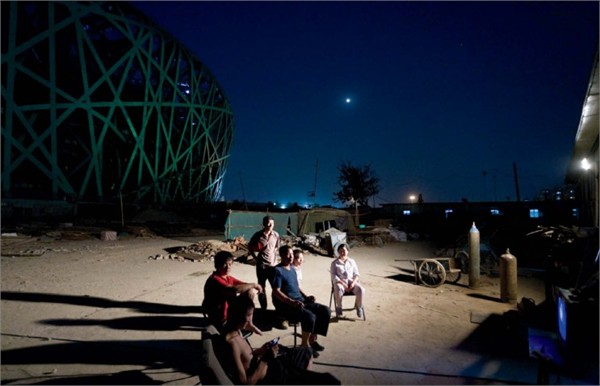
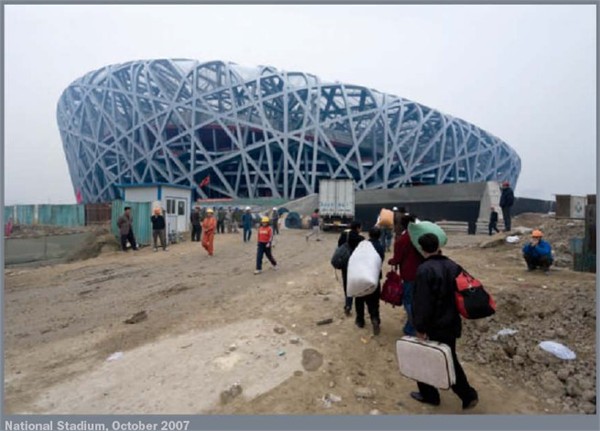
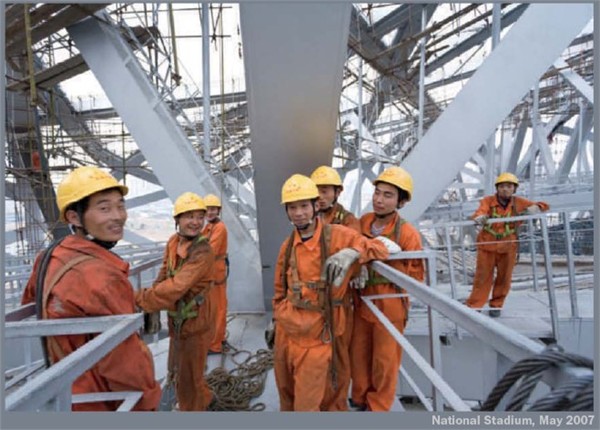
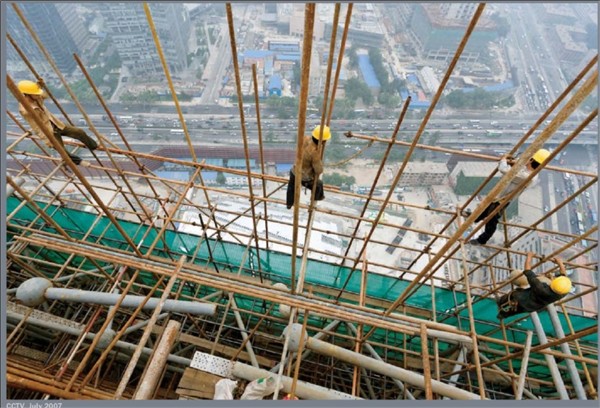
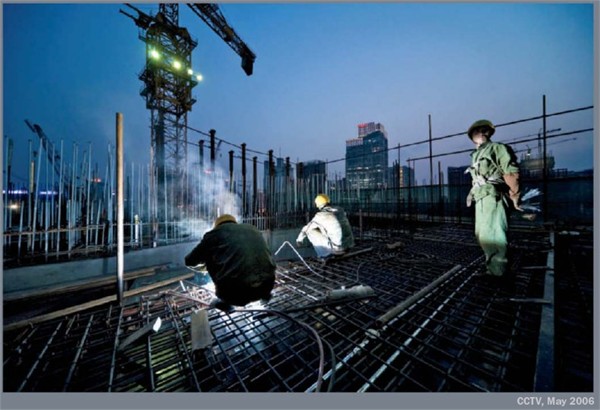
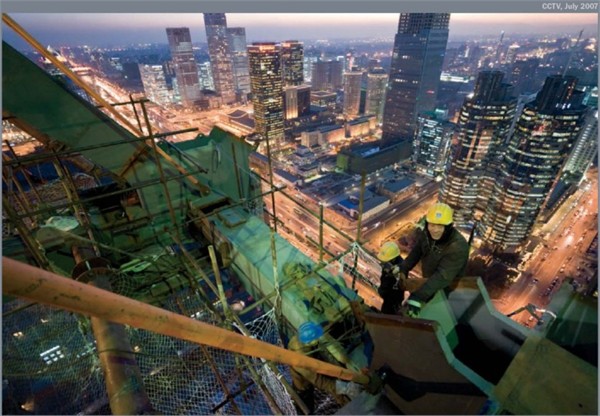
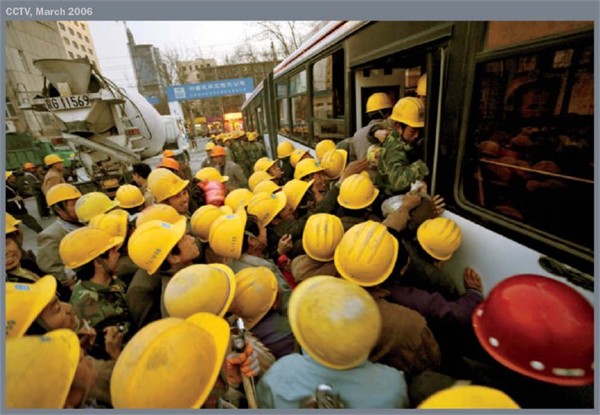











所有评论